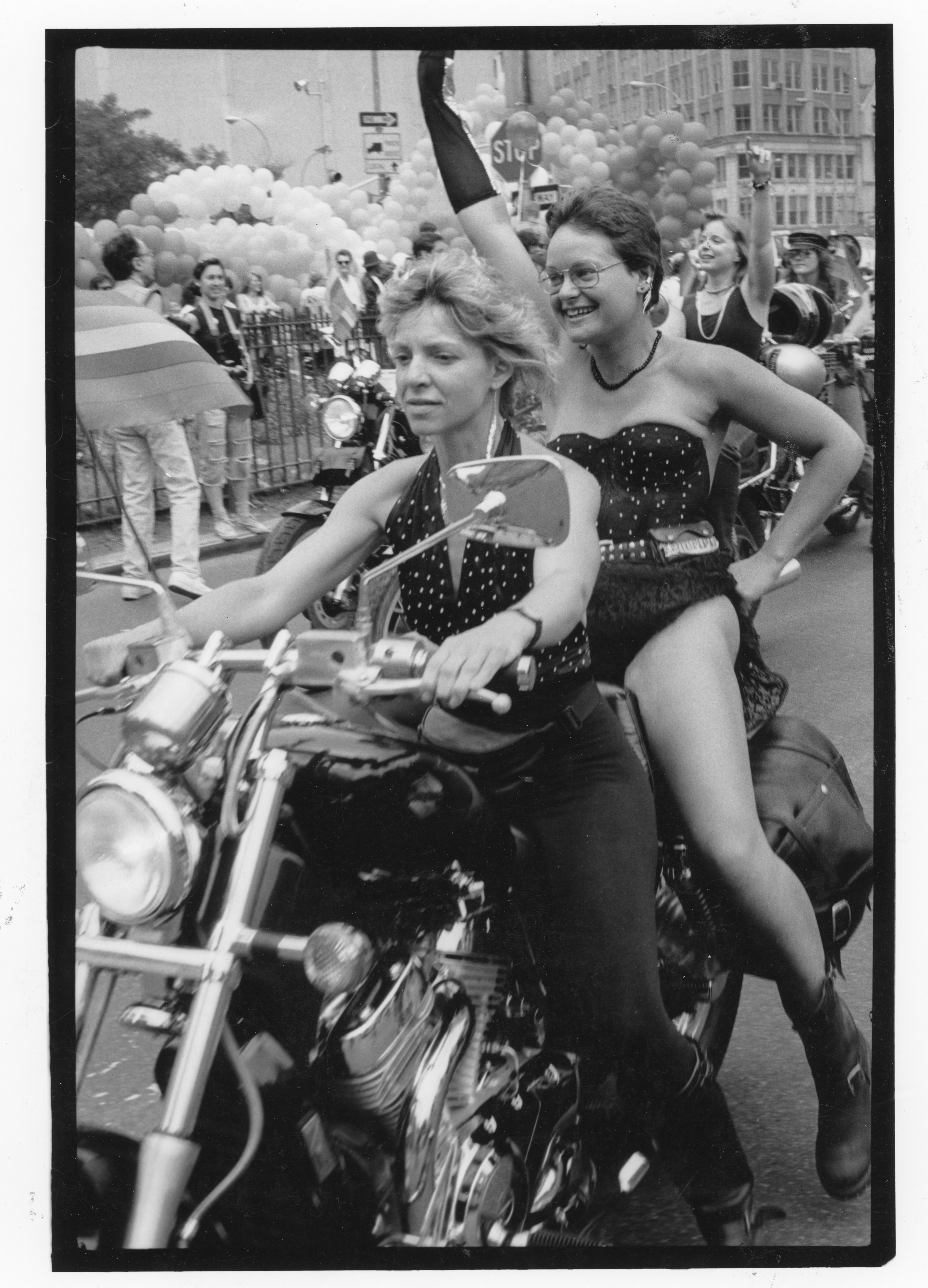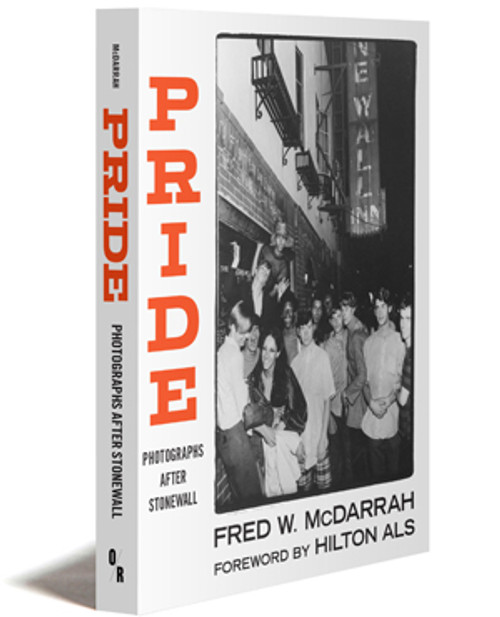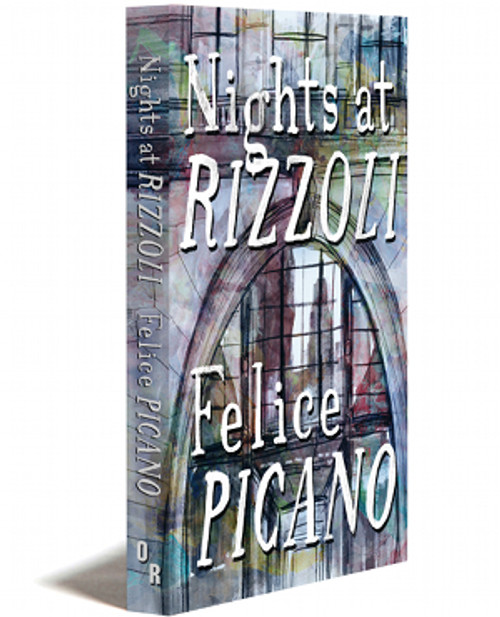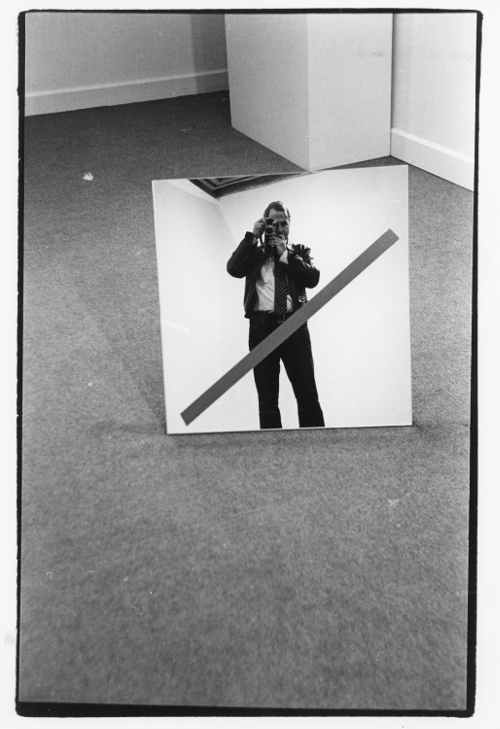Pride
“McDarrah had an inflamed curiosity, great feelers and an ability to capture liquid moments. He also had hustle.”
—Dwight Garner, The New York Times“[McDarrah's] nocturnal flash reveals a multitude of subversions.”
—Allen Ginsberg“Inescapable images of a dirtier, mangier, more creatively churning time that is receding into legend.”
—James Wolcott, Vanity Fairabout the bookabout
PRIDE is back.
Fifty years ago this coming June, the Stonewall uprising occurred in Greenwich Village-an event that marked the coming-out of New York's gay community and a refusal by gays to accept underground status that was as important in its way as the Montgomery bus boycott was to the civil rights movement. As a direct outcome of Stonewall, gay pride marches were held in 1970 in San Francisco, Los Angeles, and New York.
The ultimate chronicler of New York's downtown scene in that period, and therefore of a signal moment in gay culture, was the late Fred W. McDarrah, the first staff photographer and first picture editor of the legendary Village Voice. In a recent appreciation of the man and his work in The New York Times, "He Was the Visual Voice of the Village Voice", Dwight Garner wrote: "McDarrah had an inflamed curiosity, great feelers and an ability to capture liquid moments. He also had hustle."
Twenty-five years ago, to mark Stonewall's 25th anniversary, McDarrah brought out a work that became a classic: Gay Pride: Photographs from Stonewall to Today. That book has long been out of print. Now, scanning from original negatives, OR Books has lovingly re-set and re-designed the book, newly entitled Pride. This edition also includes a number of photographs not in the original and available nowhere else.
The forthcoming edition of Pride features a new foreword by Hilton Als (the New Yorker critic, who got his first job from McDarrah) and essays by Allen Ginsberg and Jill Johnston. Its portraits of people and setting are unique, but as Hilton Als puts it, McDarrah deserves a lasting place in New York's alternative history not only for his documentation of a world in transformation, but for his work as "an agent of change himself."
All photographs © Fred W. McDarrah. All rights reserved.




About The Author / Editor
in the media
Pride
“McDarrah had an inflamed curiosity, great feelers and an ability to capture liquid moments. He also had hustle.”
—Dwight Garner, The New York Times“[McDarrah's] nocturnal flash reveals a multitude of subversions.”
—Allen Ginsberg“Inescapable images of a dirtier, mangier, more creatively churning time that is receding into legend.”
—James Wolcott, Vanity Fairabout the bookabout
PRIDE is back.
Fifty years ago this coming June, the Stonewall uprising occurred in Greenwich Village-an event that marked the coming-out of New York's gay community and a refusal by gays to accept underground status that was as important in its way as the Montgomery bus boycott was to the civil rights movement. As a direct outcome of Stonewall, gay pride marches were held in 1970 in San Francisco, Los Angeles, and New York.
The ultimate chronicler of New York's downtown scene in that period, and therefore of a signal moment in gay culture, was the late Fred W. McDarrah, the first staff photographer and first picture editor of the legendary Village Voice. In a recent appreciation of the man and his work in The New York Times, "He Was the Visual Voice of the Village Voice", Dwight Garner wrote: "McDarrah had an inflamed curiosity, great feelers and an ability to capture liquid moments. He also had hustle."
Twenty-five years ago, to mark Stonewall's 25th anniversary, McDarrah brought out a work that became a classic: Gay Pride: Photographs from Stonewall to Today. That book has long been out of print. Now, scanning from original negatives, OR Books has lovingly re-set and re-designed the book, newly entitled Pride. This edition also includes a number of photographs not in the original and available nowhere else.
The forthcoming edition of Pride features a new foreword by Hilton Als (the New Yorker critic, who got his first job from McDarrah) and essays by Allen Ginsberg and Jill Johnston. Its portraits of people and setting are unique, but as Hilton Als puts it, McDarrah deserves a lasting place in New York's alternative history not only for his documentation of a world in transformation, but for his work as "an agent of change himself."
All photographs © Fred W. McDarrah. All rights reserved.




About The Author / Editor










